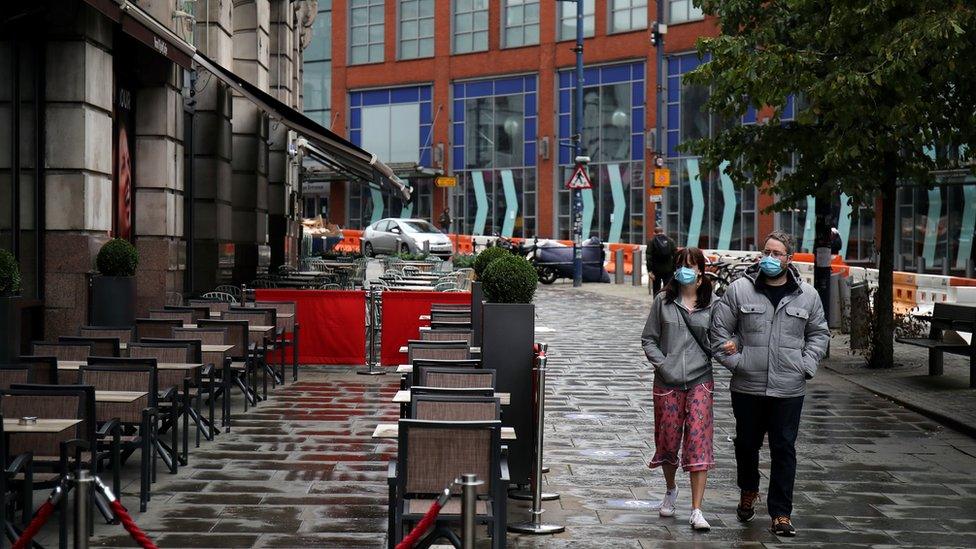Birmingham Council 'late' over outdoor seating pleas
- Published
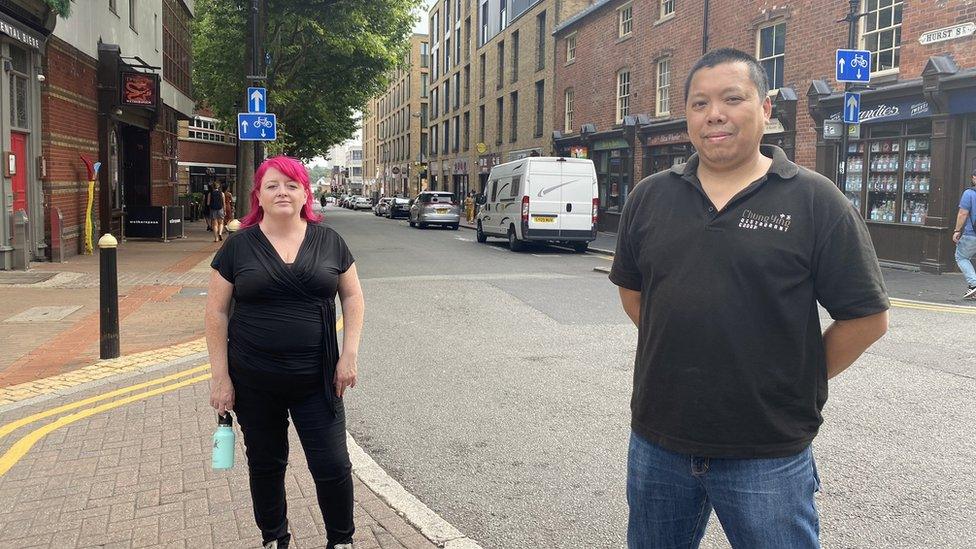
Jo Kinsella, who manages Southside's The Arcadian quarter, and restaurateur James Wong want a street pedestrianised
A council has been accused of being late to support bars and restaurants struggling amid the Covid-19 pandemic.
Venues want to extend outdoors seating to boost footfall in one of Birmingham's main entertainment districts.
After months of discussions, the council says it is near to allowing the scheme, and hopes to pedestrianise Hurst Street by the weekend to help.
The authority says it is committed to aiding businesses' recovery.
But for some traders, the development in Birmingham is not timely enough.
Southside Business Improvement District (BID) - which represents an area including the city's Chinatown and Gay Quarter - has been a frustrated advocate of closing the site to cars to increase the al fresco offering.
The move, it says, will allow social distancing to be maintained without compromising the amount of seating, making the area not only safe but attractive to customers in its own right.
As councils elsewhere rolled out similar plans this summer, the group said "draconian nonsense" had been preventing action in Birmingham.
The director of Southside BID, Lawrence Barton, has welcomed the council's latest stance, but adds "discussions are taking place that could have taken place two months ago".
His frustration was echoed by James Wong, owner of the area's Chung Ying restaurant.
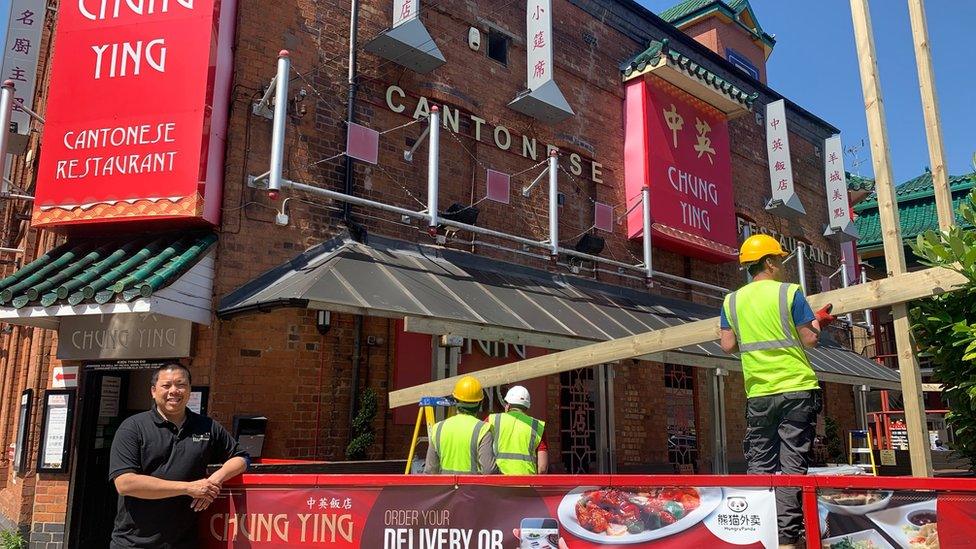
Mr Wong said businesses were "struggling" because of coronavirus
"We're all trying to survive at this stage," Mr Wong said.
"[Businesses] are struggling because people are not coming out to eat.
"We are the second city so we want to be seen to be doing things and helping struggling businesses."
To the council's suggestion it was nearing a solution, Mr Wong said: "My main frustration has been it's probably a little late.
"It will be mid-August before you can get something up and going."
The government announced a fast-track temporary pavement licence scheme in June.
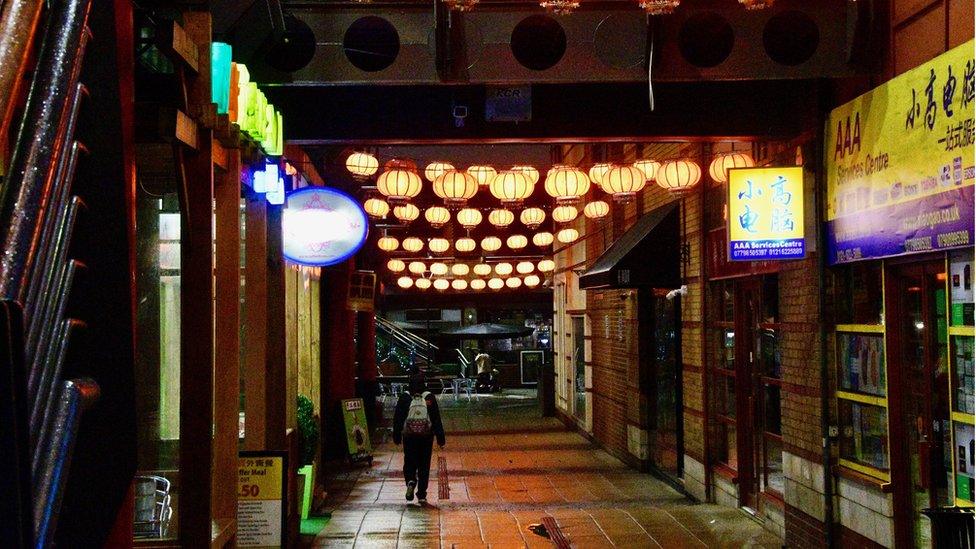
Birmingham's Southside has been "devastated" by the pandemic according to business leaders
The council said it was "committed to helping our businesses recover" and the plan to temporarily pedestrianise Hurst Street had "moved forward".
Issues it said it had to take into account were a coronavirus risk assessment and other safety precautions, including access for emergency vehicles and counter-terrorism measures.
Councillor Waseem Zaffar, cabinet member for the environment, said the council wanted to protect "the area's reputation as a social hub and hotspot for nightlife".
Street seating is already being used in Manchester, and Derby transformed its market place into an al-fresco area within three weeks.
"It can be done, and it can be done quickly," said Derby City Council deputy leader Matthew Holmes, adding the scheme was "incredibly successful".

Follow BBC West Midlands on Facebook, external, Twitter, external and Instagram, external. Send your story ideas to: newsonline.westmidlands@bbc.co.uk , external
- Published7 August 2020

- Published25 June 2020
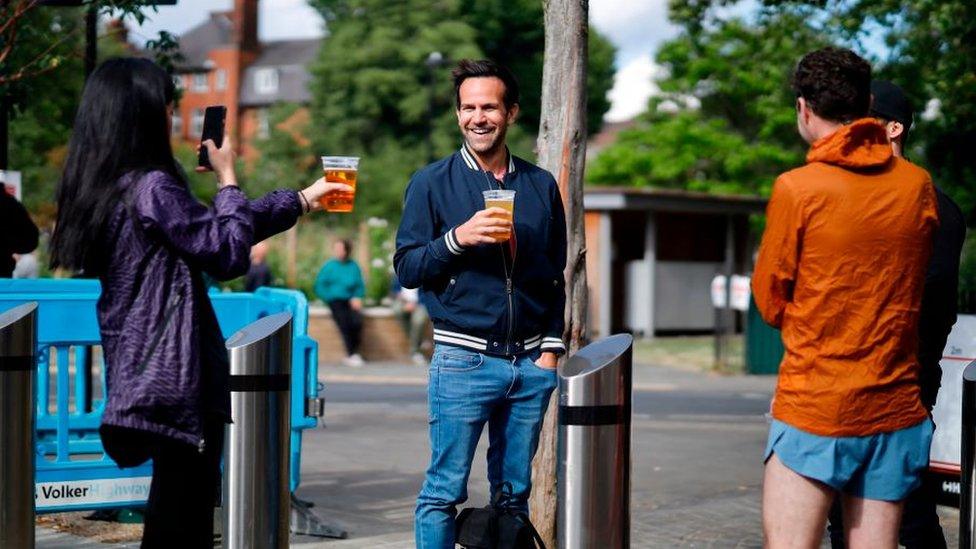
- Published6 August 2020
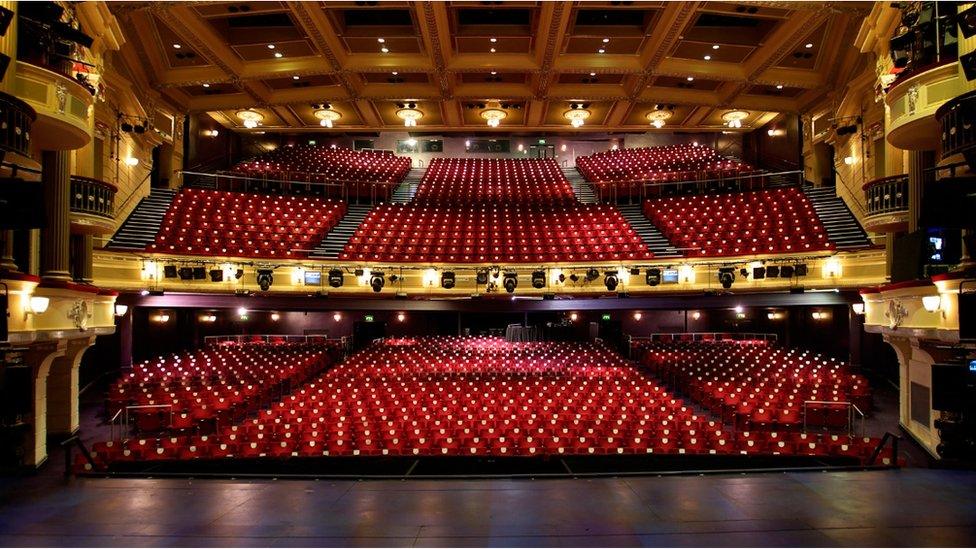
- Published29 June 2020

- Published5 August 2020
